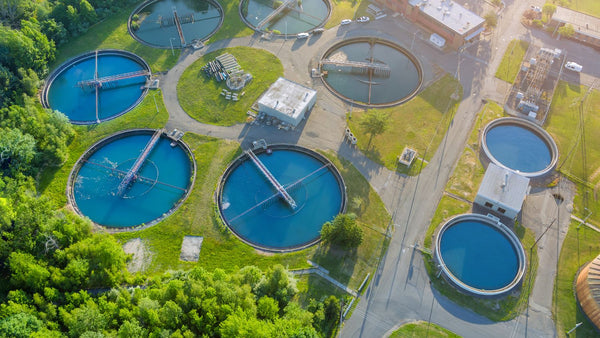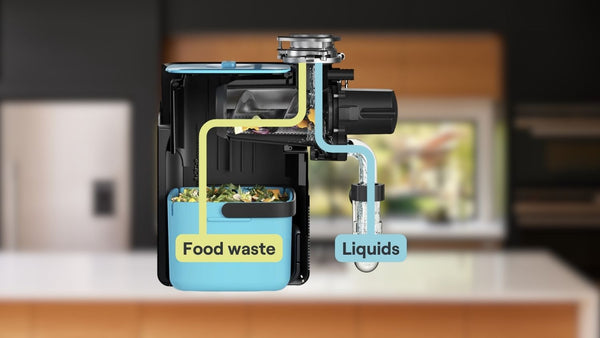Managing waste efficiently is crucial for both San Francisco's environment and the city's infrastructure. So we asked the San Francisco Public Utilities Commission (SFPUC) about the impact of food waste on wastewater treatment centers, to sum it up, here’s what they said.
In San Francisco, waste from garbage disposals is processed through the city's wastewater treatment system. Organic materials present challenges, increasing treatment costs and impacting sustainability due to chemical usage and biosolids disposal.
Below you’ll find our exact questions about the impact of organics on wastewater treatment plants and the environment, and the answers the San Francisco Public Utilities Commission replied with.

Where does garbage disposal waste go in San Francisco?
Here’s what we asked the SFPUC, and what their response was.
Question: What challenges does the inclusion of organic materials in wastewater present to the treatment process, and how does it impact the overall efficiency and sustainability of the system?
Answer: Increases the cost of treatment at the plants due increase in chemical usage and biosolids disposal.
Question: Where are organics and food waste currently sent once they have been treated?
Answer: Solids are processed via anaerobic digestion and used as alternative daily cover at a permitted landfill, land-applied for agricultural use, conveyed to a separate facility to produce liquid fertilizer, or stored in drying beds.
Question: Could you explain the reasons behind the guidance to avoid disposing of organics in the drain?
Answer: High organics cause odor issues, increases the potential for sewer blockages via Fats, Oils and Grease buildup, decrease the lifespan of infrastructure (sewers, pump station, treatment facilities, cost of treatment of wastewater.)
The takeaway - avoid washing food down your drain. Sepura, the composting garbage disposal, remedies this issue by sending all solids washed down your sink into an odor-free compost bin, only liquids drain. Sepura gives you the convenience of a garbage disposal without the damage and increased cost to wastewater treatment centers (and clogged kitchen pipes).
The Journey of Garbage Disposal Waste
When you flick the switch on your garbage disposal, the ground-up food waste joins the city's wastewater stream, heading toward treatment facilities. Here's a closer look at the process and its implications:
Challenges in Wastewater Treatment
The inclusion of organic materials in wastewater complicates the treatment process significantly. It leads to:
- Increased Treatment Costs: More chemicals and energy are required to manage the additional organic load.
- Odor Issues and Infrastructure Strain: High organics can lead to unpleasant smells and accelerate the wear and tear on city infrastructure, shortening the lifespan of sewers, pump stations, and treatment facilities.
Final Destinations of Treated Waste
Once treated, the solids from the wastewater, including the remnants from your garbage disposal, find their way to various end-uses such as:
- Agricultural Application: Processed as a nutrient-rich soil amendment.
- Landfill Cover: Utilized as alternative daily cover to minimize odor and pests at landfills.
- Liquid Fertilizer Production: Converted at specialized facilities for use in agriculture.

Rethinking Food Waste Disposal
Understanding the impact of sending food down the drain sheds light on the importance of alternative waste management methods, such as composting. San Francisco's robust composting program offers a more sustainable avenue for organic waste, turning kitchen scraps into valuable compost for local agriculture.
A Call to Compost
While garbage disposals might seem like a quick fix for food waste, the journey and impact of this waste in cities like San Francisco highlight the need for more sustainable practices. By opting for Sepura, not only do we alleviate the strain on wastewater treatment systems, but we also contribute to a greener, more sustainable city.



